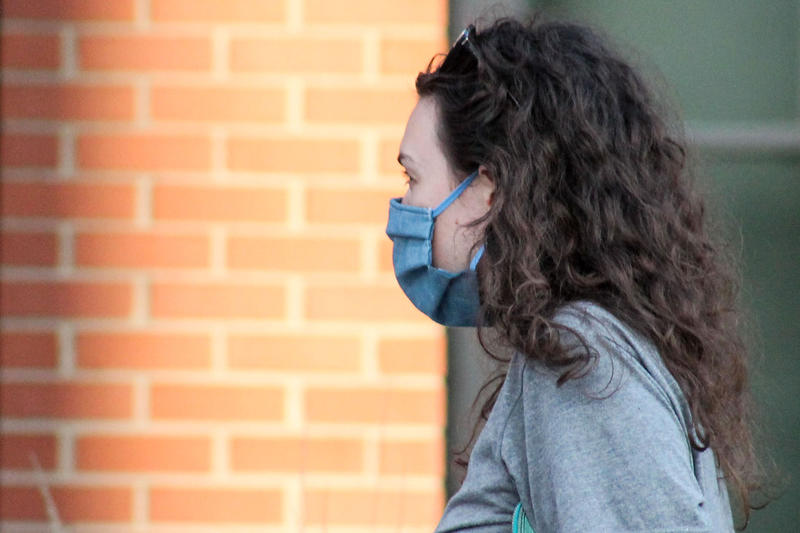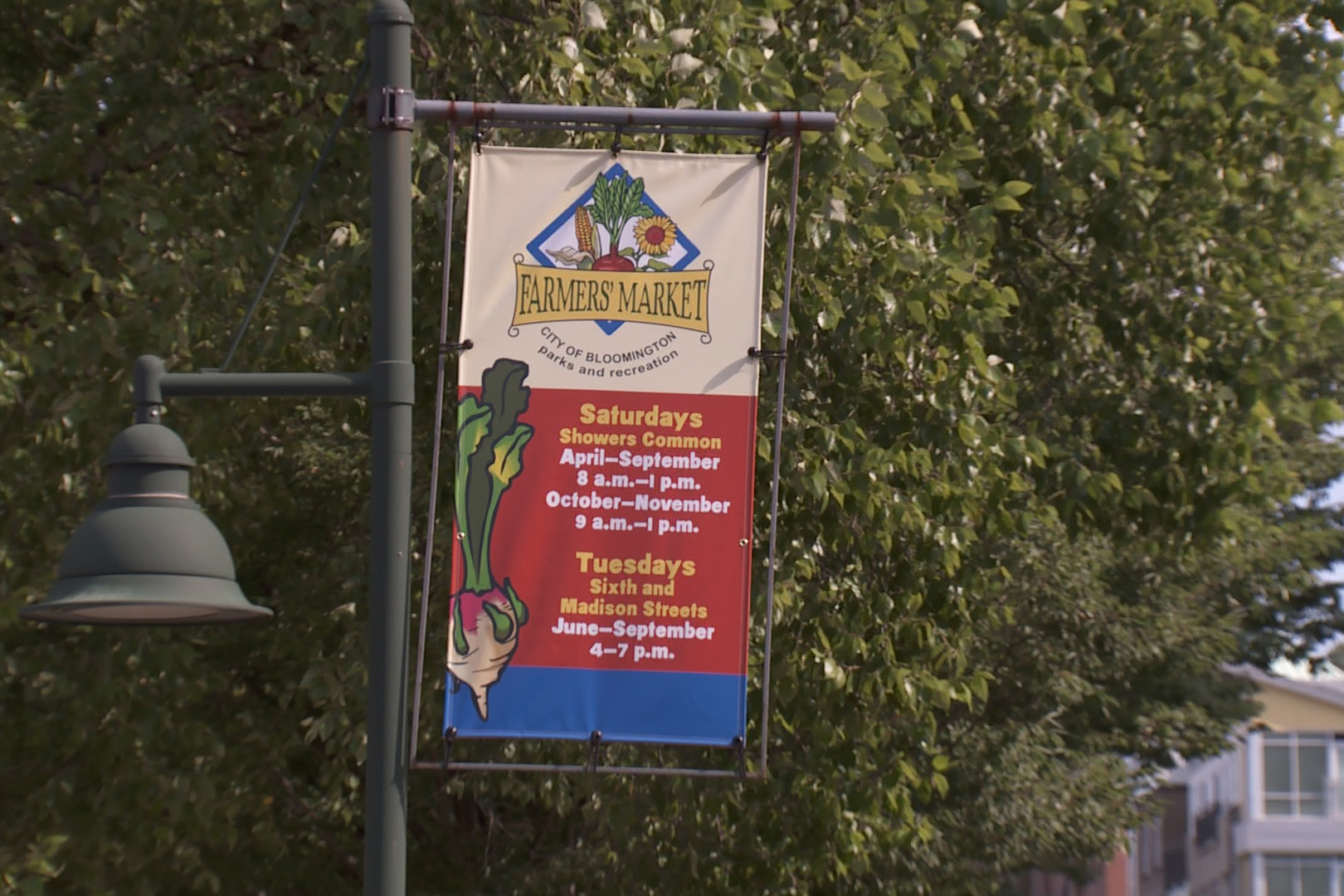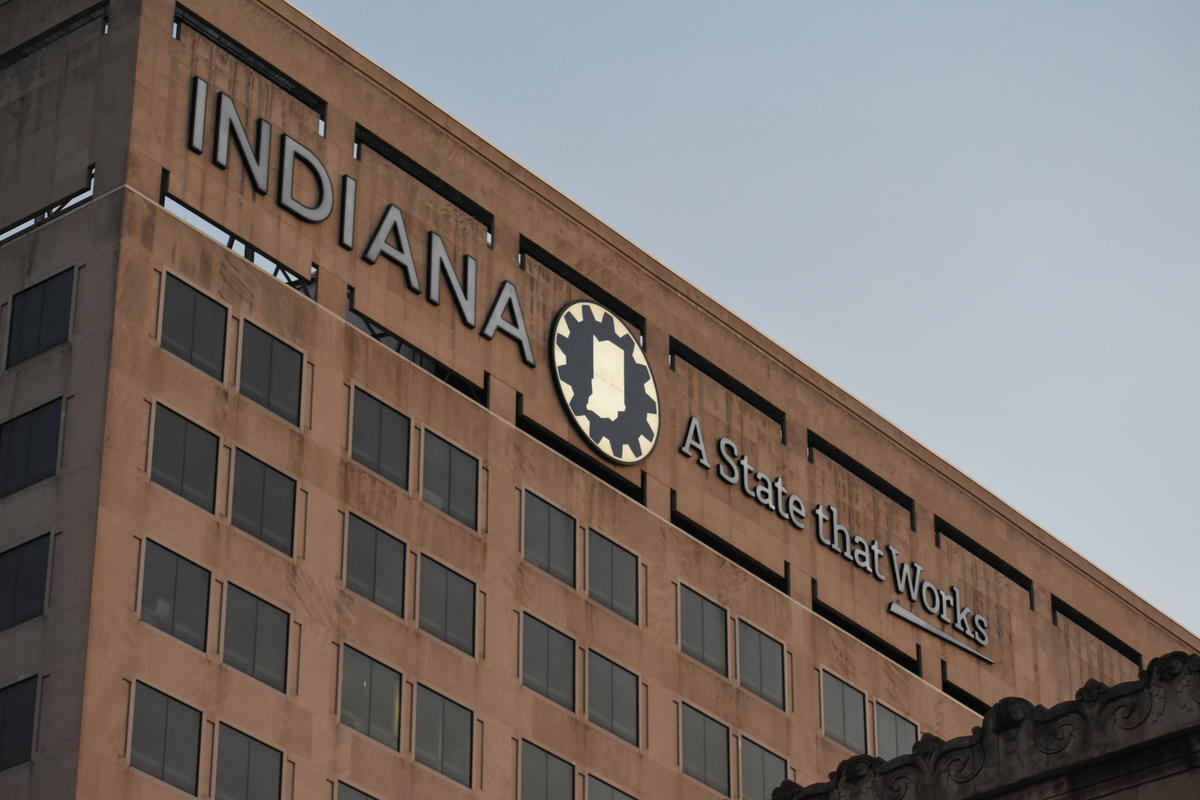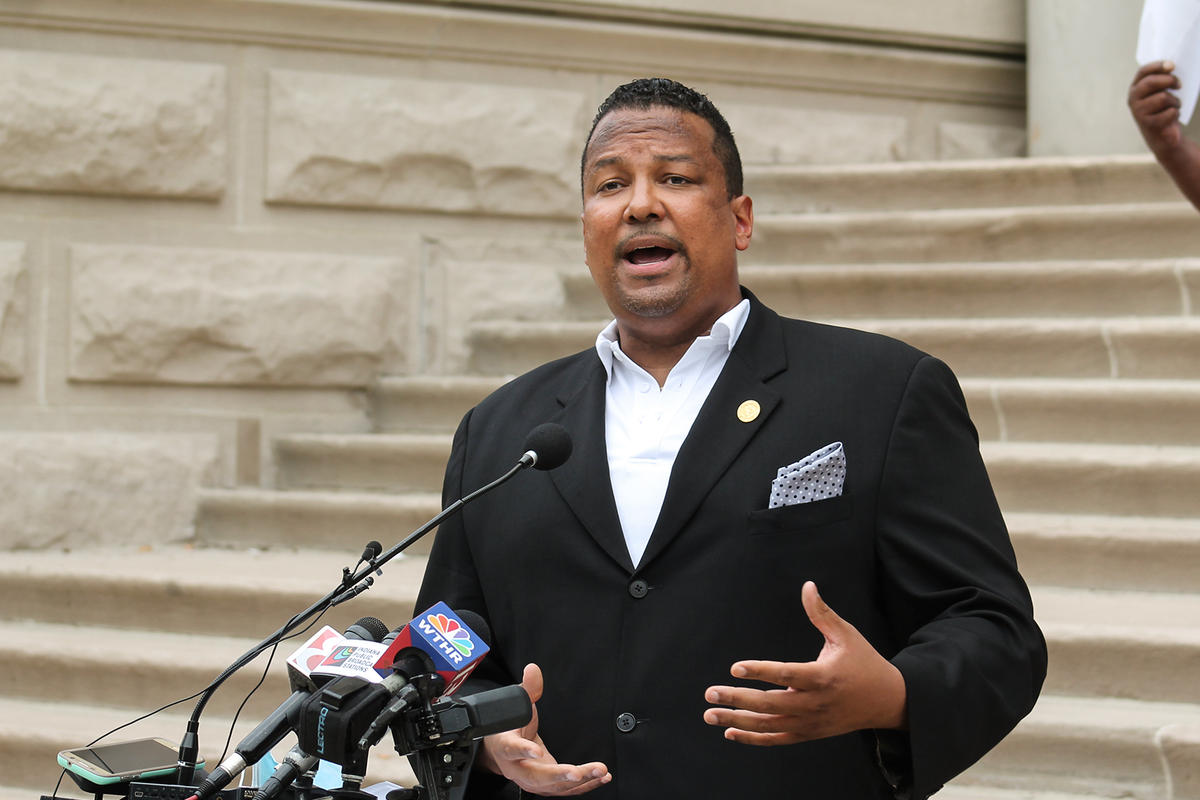
Curtis Hill contends the governor’s executive orders near the beginning of the pandemic were “unfortunate” but justified. (Lauren Chapman, IPBS News)
Our City Limits reporting team is answering your questions about the coronavirus.
Wyatt Lee asks: “Why did Indiana choose to make a statewide mandate on masks without putting in place a penalty for people not wearing masks?”
Hours after Gov. Eric Holcomb issued a mask order, the state’s attorney general issued a non-binding opinion writing the order violated the separation of powers.
“According to Attorney General Hill, the express delegation of authority that the General Assembly gave the governor … would have to specifically mention masks,” says Jody Madeira, Law and Medicine at Indiana University’s Maurer School of Law.
“And that’s silly, point blank,” Madeira says.
READ MORE: Does Governor Have Authority To Enforce Mask Mandate?
Madeira believes Holcomb’s order — responding to a pandemic — is the type of action Indiana’s emergency powers law was intended to allow.
“There's not separate emergency laws to cover different types of emergencies,” she says. “If we were to have a forest fire that would threaten part of the state, there isn't a forest fire emergency law, there's not a pandemic emergency law.”
Official Opinion 2020-6 by Indiana Public Media News on Scribd
The attorney general disagrees, arguing that the state legislature should have to convene after a certain point to pass new laws and penalties for breaking them.
In a letter to Holcomb and leaders of the General Assembly, Hill questioned the governor’s ability to continue issuing executive orders responsive to the COVID-19 pandemic and called for a special legislative session to “address public governance challenges” caused by the virus.
READ MORE: Indiana Top Attorney Calls For Special Legislative Session
Hill contends the governor’s executive orders near the beginning of the pandemic were “unfortunate” but justified. There was an urgent public health crisis then, Hill said, and the governor’s actions were needed to prevent “public disaster and chaos.”
Hill further complained that the governor’s executive orders have sent inconsistent and confusing messages to Hoosiers statewide. The attorney general said Holcomb has been unclear about which components of his executive orders are mandates and which are requirements.
Hill also referenced recent anxieties experienced by Indiana schools leaders after mixed messages were released by both lawmakers and the governor over potential cuts to school funding as a result of the pandemic.
“Candidly, while Hoosiers at first mostly obeyed the Governor’s emergency orders, as those orders have endured, overreached, mutated, or proven impracticable, many citizens have begun to lose respect for them,” Hill said.
READ MORE: Statewide Mask Order Taking Effect Monday
A special session, the attorney general concluded, “is the only way” to “restore public confidence is constitutional government” and ensure consistency in public funding and relevant lawmaking during the pandemic.
Steve Sanders, a professor of constitutional law at IU’s law school, agrees with the AG that Indiana law does not go into enough detail.
“If push came to shove, maybe the governor would try to say this could be shoehorned under this provision,” Sanders says. “But I think the better legal argument is that the governor actually does not have the power to do this.”
He says Holcomb could have retreated on enforcement to avoid losing the mandate entirely.
READ MORE: Hill: Holcomb Doesn't Have Authority To Issue Mandate
“If somebody had actually been arrested or fined and hauled up in court, then they could have made their argument that this law exceeded the governor's authority,” he says. “It would have been embarrassing for him, it might have been more dangerous for the state's health.”
With many already wearing masks in public, keeping a relatively toothless mandate might help reinforce good behavior. And if Holcomb decided to try to enforce the penalties anyway, it might be hard for him to defend them without his attorney general on board.
“The attorney general's office would be the one that would have to defend it, if it were challenged in court. And this is an odd situation where the attorney general's office has already said basically, the governor doesn't have the power to do it,” he says.
READ MORE: Holcomb Confident In Authority To Issue Mask Mandate
Even if the state’s mask mandate is relatively tame, there’s nothing stopping local authorities from taking a harder line.
Monroe County’s mask order was in effect for a brief time before the state’s was put in place.
“We could do either, legally, if an individual is not complying, but we really want to pursue the civil side of it,” says Monroe County commissioner Julie Thomas.
“We certainly don't want to make this a criminal issue,” she says.
READ MORE: Holcomb Reverses Course: No Penalty In Mask Mandate
Especially with university students moving in, the county strategy is to educate.
They’re also asking the public to report violations at businesses such as bars and restaurants.
“We do have a complaint form available online,” Thomas says. “This is not an opportunity to harass individuals about whether or not they're wearing a face shield or face mask. But it does allow you to report a business where you're seeing a problem.”
Thomas says the county received a dozen complaints within the first three days.
The Associated Press contributed to this report.
For the latest news and resources about COVID-19, bookmark our Coronavirus In Indiana page here.










